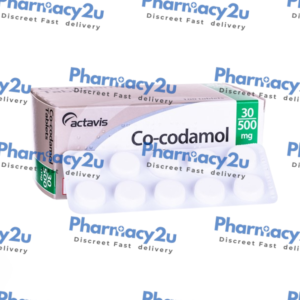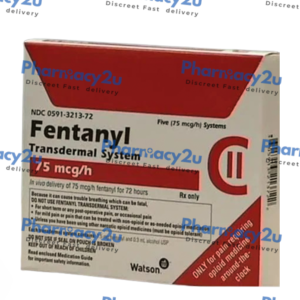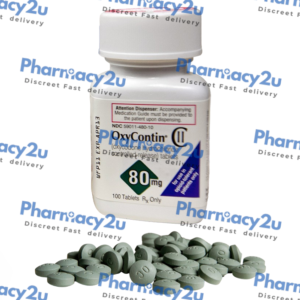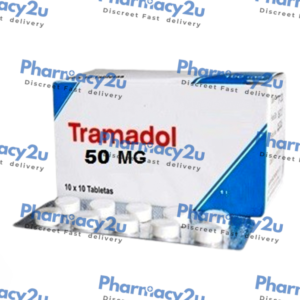Is Pregabalin addictive?
Yes, pregabalin (Lyrica) can be addictive. While it is primarily prescribed for conditions such as neuropathic pain, fibromyalgia, and seizures, its potential to produce euphoria and sedation can lead to misuse and dependence. Individuals may develop a pattern of compulsive use, often taking higher doses than prescribed or using it more frequently. Withdrawal symptoms can occur upon discontinuation, including anxiety, mood changes, and physical discomfort. Those with a history of substance abuse are particularly at risk of developing an addiction to pregabalin.
How long does Lyrica stay in your system?
Pregabalin Lyrica 300 mg typically lasts in the body for about 30 to 35 hours after administration. The medication reaches peak plasma concentrations within approximately 1.5 hours, and its clinical effects can last throughout this duration, although individual responses may vary. It’s important to note that while pregabalin remains detectable in the system for this time, the actual therapeutic effects may diminish before the drug is fully eliminated.
How to avoid weight gain on pregabalin?
Pregabalin can sometimes cause weight gain due to its effects on appetite and water retention. To avoid or minimize weight gain while on pregabalin, consider these tips:
- Maintain a healthy, balanced diet with fewer high-calorie foods.
- Engage in regular physical activity, like walking or exercising.
- Monitor your weight and consult your doctor if you notice significant changes.
- Drink plenty of water to help reduce bloating or water retention.
Does pregabalin make you sleepy?
Yes, Pregabalin Lyrica can make you feel sleepy or drowsy, especially when you first start taking it or if the dose is increased. This is one of its common side effects, as pregabalin acts on the central nervous system. If you experience excessive drowsiness, it’s advisable to avoid activities requiring mental alertness, such as driving.
Can you drink alcohol with pregabalin?
It is generally not recommended to drink alcohol while taking Pregabalin Lyrica. Combining pregabalin with alcohol can enhance side effects like dizziness, drowsiness, and difficulty concentrating, and it may increase the risk of more severe side effects.
How long does Pregabalin Lyrica take to kick in?
Pregabalin Lyrica usually starts working within 30 minutes to 1 hour after taking a dose. However, for some conditions like nerve pain or anxiety, it may take a few days to weeks of regular use for the full effect to be noticeable.
How long does it take Pregabalin Lyrica to work for anxiety?
For anxiety, Pregabalin Lyrica often takes about 1 to 2 weeks to show noticeable effects. Some people may experience a calming effect sooner, but the maximum benefit is usually felt after consistent use for several weeks.
How to taper off Pregabalin Lyrica safely?
To taper off Pregabalin Lyrica safely:
- Consult Your Doctor: Always talk to your healthcare provider before reducing the dose.
- Gradual Reduction: Reduce the dose slowly over a period of weeks or months, depending on how long you’ve been taking it and your current dose.
- Watch for Symptoms: Be alert for withdrawal symptoms like anxiety, sweating, or insomnia. If symptoms occur, inform your doctor—they may adjust the tapering plan.
What drug class is pregabalin?
Pregabalin belongs to the anticonvulsant drug class, but it is also classified as a neuropathic pain reliever and an antiepileptic drug (AED).
Why does pregabalin cause weight gain?
Pregabalin can lead to weight gain for several reasons:
- Increased appetite: Pregabalin may affect certain brain chemicals, leading to an increase in hunger or appetite.
- Fluid retention: Pregabalin can cause the body to retain excess fluids, leading to temporary weight gain, even if fat accumulation is not the main cause.
- Changes in metabolism: It may alter the body’s metabolism in ways that can promote weight gain.
- Sedation: As pregabalin can cause drowsiness or dizziness, it might reduce physical activity levels, leading to an increase in weight.
Is Pregabalin Safe?
Pregabalin is generally considered safe when used as prescribed by a doctor. It is often used to treat conditions such as neuropathic pain, anxiety disorders, and fibromyalgia, and can also be prescribed for seizure control.
What Not to Take with Pregabalin?
Certain medications and substances can interact negatively with pregabalin. Some of the things to avoid or use with caution include:
- Other central nervous system (CNS) depressants: Combining pregabalin with substances like alcohol, benzodiazepines (e.g., diazepam), opioids, or certain sleep medications can enhance sedation and the risk of respiratory depression and overdose.
- Antacids: Some antacids containing aluminum or magnesium can interfere with the absorption of pregabalin, reducing its effectiveness.
- Diuretics: Taking diuretics (water pills) with pregabalin can increase the risk of swelling in the hands, feet, or legs.
- Gabapentin: Since pregabalin and gabapentin are both used to treat nerve pain and other conditions, using them together might lead to increased side effects, including sedation or dizziness.
Can Pregabalin Cause Constipation?
Yes, pregabalin can cause constipation as a side effect in some people. Although it’s not very common, constipation is listed as a potential gastrointestinal side effect of pregabalin.
What Painkillers can I take with Pregabalin?
When taking pregabalin, the choice of painkillers depends on your condition and medical history. Here are some options:
Safe Painkillers with Pregabalin:
- Paracetamol (Acetaminophen) – Generally safe and commonly used for mild to moderate pain.
- NSAIDs (e.g., Ibuprofen, Naproxen, Aspirin) – Can be used, but caution is needed, especially if you have stomach, kidney, or heart issues.












Declan George –
The standout feature for me is definitely the delivery speed. I’ve placed several orders, and each time, they’ve arrived right on schedule—or even earlier than expected! The free delivery is a bonus,